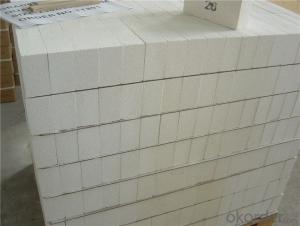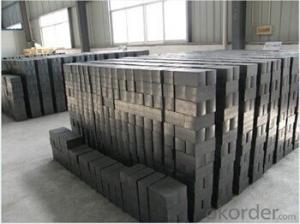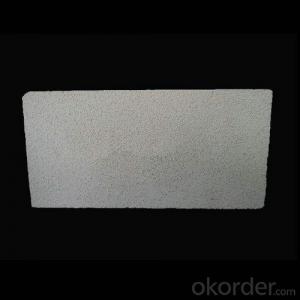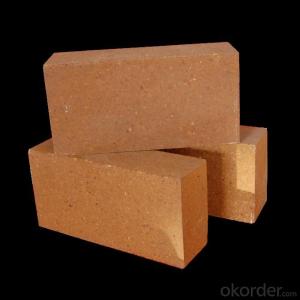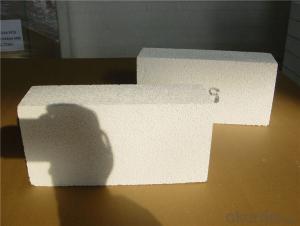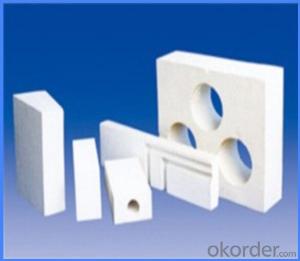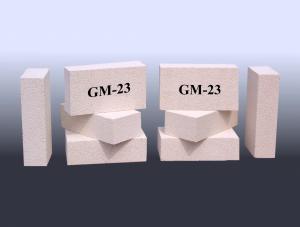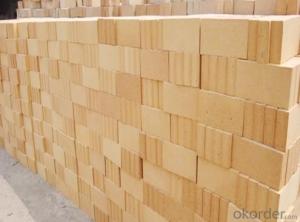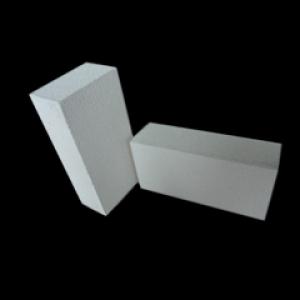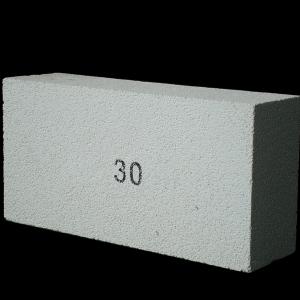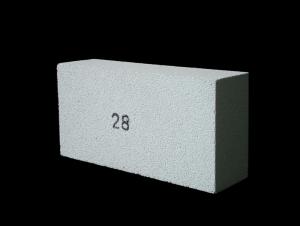High Temperature Fireproof Fire Clay Refractory Heatinsulation Bricks for Thermal Equipment
- Loading Port:
- Shanghai
- Payment Terms:
- TT OR LC
- Min Order Qty:
- 1 m.t.
- Supply Capability:
- 1000 m.t./month
OKorder Service Pledge
OKorder Financial Service
You Might Also Like
Thermal Insulation Fire Clay Brick
Refractory brick is a block of refractory ceramic material used in lining furnaces, kilns, fireboxes, and fireplaces.
We provide high quality Refractory Fire Bricks that are used on wide range in the various industries like Cement, Glass and Steel. Refractory Fire Bricks are provided as per the quantity and specifications required by the customers. We provide an extensive range of Refractory Fire Bricks at reasonable prices that depend upon the quantity ordered.
Application
Insulating Fire Brick are used for the lining of converter, alternating current arc furnace, direct Current arc furnace and the ladle slag line, etc.
Company Advantage
(1)Long Insulating Fire Brick manufacture history: 25 years manufacturer
(2)Advanced equipment
(3)Diversification of production standards: ISO ANSI FEPA JIS ASTM
(4)Flexible payment: T/T L/C D/P D/A
(5)Professional marketing team and after-sale service
Insulating Fire Brick main feature:
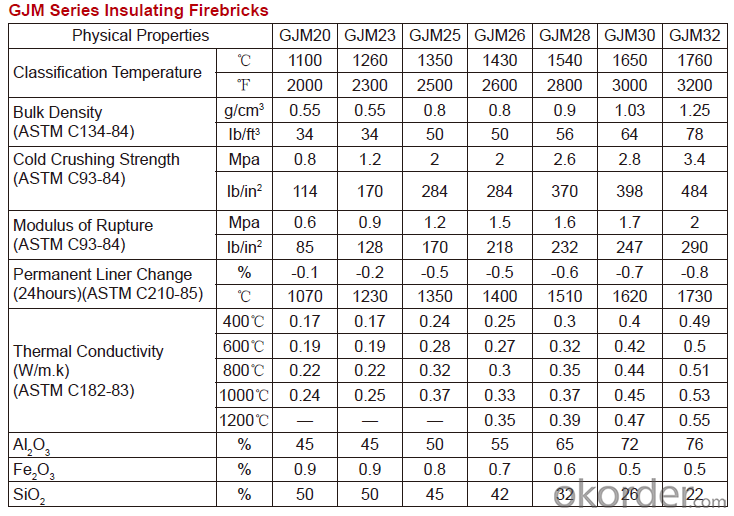
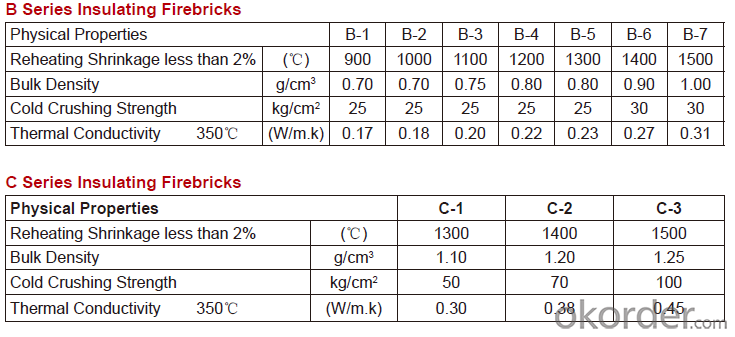
Equipment
1 unit of Ceramic Abrasive (SG Abrasive) pilot production line
2 units of Compact grain Abrasive pilot production lines
1 unit of high-end coated abrasives (abrasive cloth) production line
2 units of Boron Carbide production lines
3 large flexible crushing and sieving lines for grit production lines
6 units of 5000KVA-10000KVA dumping type electric arc furnaces for Brown Fused Alumina fusion
Q1 What’s the transport method?
A1 FCL delivery goods with wooden pallet or wooden case by sea; If LCL delivery, must with wooden case; Sometimes need open top, flat rack or bulk cargo.
Q2 What’s the required payment term?
A2 Generally 30% TT as the prepayment, 70% TT before delivery. If need, 100% Irrevocable Letter of Credit or negotiation.
Q3 Which country are our products exported to?
A3 Apart from entire Chinese market, the US, Russia, Japan, Korea, Australia and some Southeast Asian Nations.
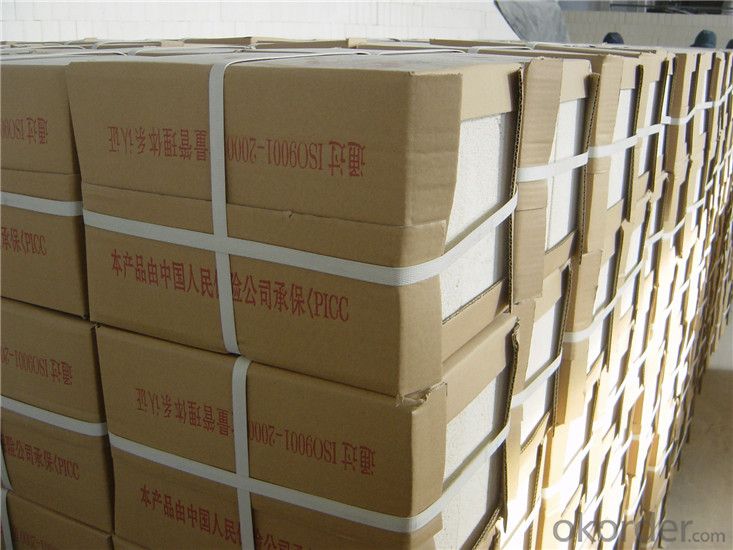
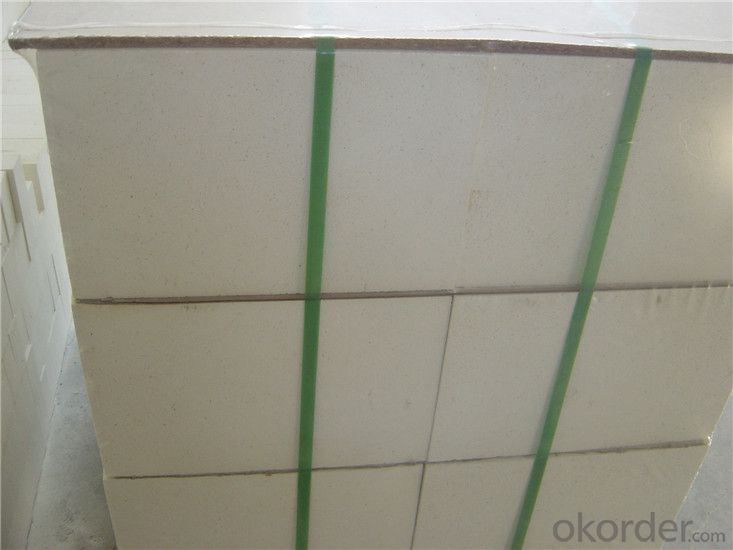
- Q:How does the density of an insulating fire brick affect its performance?
- The density of an insulating fire brick directly affects its performance. A higher density brick usually offers better insulation properties, as it contains more air pockets that prevent heat transfer. On the other hand, a lower density brick may have reduced insulation capabilities but can be more lightweight and easier to handle. Therefore, selecting the appropriate density for an insulating fire brick is crucial in achieving the desired level of insulation and overall performance.
- Q:Can insulating fire bricks be used for insulation in cryogenic applications?
- Yes, insulating fire bricks can be used for insulation in cryogenic applications. These bricks have excellent thermal properties that make them suitable for maintaining low temperatures and preventing the transfer of heat in cryogenic environments. They are designed to resist extreme cold and can effectively insulate against the loss of thermal energy, making them a reliable choice for cryogenic insulation.
- Q:Can insulating fire bricks be used in the insulation of boilers?
- Yes, insulating fire bricks can be used in the insulation of boilers. Insulating fire bricks are designed to withstand high temperatures and are highly effective at insulating against heat transfer. They have low thermal conductivity, which means they can help reduce heat loss from the boiler and improve its overall energy efficiency. Additionally, insulating fire bricks are lightweight and easy to install, making them an ideal choice for boiler insulation.
- Q:Are insulating fire bricks resistant to water penetration?
- Yes, insulating fire bricks are generally resistant to water penetration. They are made using materials that have low porosity, which helps prevent water from seeping through. However, it is worth noting that prolonged exposure to water or high humidity conditions can still lead to some water absorption over time.
- Q:Can insulating fire bricks be used in the construction of lime production molds?
- Yes, insulating fire bricks can be used in the construction of lime production molds. Insulating fire bricks are designed to have high thermal resistance, making them ideal for applications that require insulation and protection from high temperatures. Lime production molds often involve high temperatures during the firing process, and insulating fire bricks can help maintain the desired temperature and prevent heat loss. Additionally, the insulating properties of these bricks can help reduce energy consumption and improve the efficiency of the lime production process. Therefore, using insulating fire bricks in the construction of lime production molds is a suitable choice.
- Q:Are insulating fire bricks resistant to thermal expansion or contraction?
- Yes, insulating fire bricks are resistant to thermal expansion and contraction. These bricks are made of materials that have low thermal conductivity, allowing them to withstand high temperatures without undergoing significant expansion or contraction. This property makes them ideal for applications where thermal stability and insulation are required, such as in kilns, furnaces, and other high-temperature environments.
- Q:Can insulating fire bricks be used in high-temperature kilns and furnaces?
- High-temperature kilns and furnaces can indeed utilize insulating fire bricks. These bricks are specifically designed to endure extreme heat and offer remarkable insulation properties. They consist of lightweight refractory materials, including clay and silica, which possess high melting points and low thermal conductivity. By effectively retaining heat, these bricks decrease energy loss and enhance the efficiency of the kiln or furnace. Moreover, insulating fire bricks exhibit excellent resistance to thermal shock, enabling them to withstand rapid temperature fluctuations without cracking or breaking. Consequently, they are well-suited for high-temperature applications that involve frequent heating and cooling cycles in kilns or furnaces. All in all, insulating fire bricks represent an ideal choice for insulating and safeguarding high-temperature kilns and furnaces.
- Q:Can insulating fire bricks be used in tundish linings?
- Yes, insulating fire bricks can be used in tundish linings. Insulating fire bricks are designed to resist high temperatures and provide excellent insulation, making them suitable for use in tundish linings where heat containment is crucial.
- Q:Can insulating fire bricks be used as insulation in walls and roofs?
- Yes, insulating fire bricks can be used as insulation in walls and roofs. They have excellent thermal insulation properties, high heat resistance, and are specifically designed for use in high-temperature environments.
- Q:Do insulating fire bricks require maintenance?
- Yes, insulating fire bricks require minimal maintenance. They are designed to withstand high temperatures and are resistant to cracking or crumbling. However, regular cleaning to remove any debris or buildup is recommended to maintain their insulating properties and extend their lifespan.
1. Manufacturer Overview |
|
|---|---|
| Location | |
| Year Established | |
| Annual Output Value | |
| Main Markets | |
| Company Certifications | |
2. Manufacturer Certificates |
|
|---|---|
| a) Certification Name | |
| Range | |
| Reference | |
| Validity Period | |
3. Manufacturer Capability |
|
|---|---|
| a)Trade Capacity | |
| Nearest Port | |
| Export Percentage | |
| No.of Employees in Trade Department | |
| Language Spoken: | |
| b)Factory Information | |
| Factory Size: | |
| No. of Production Lines | |
| Contract Manufacturing | |
| Product Price Range | |
Send your message to us
High Temperature Fireproof Fire Clay Refractory Heatinsulation Bricks for Thermal Equipment
- Loading Port:
- Shanghai
- Payment Terms:
- TT OR LC
- Min Order Qty:
- 1 m.t.
- Supply Capability:
- 1000 m.t./month
OKorder Service Pledge
OKorder Financial Service
Similar products
New products
Hot products
Related keywords
